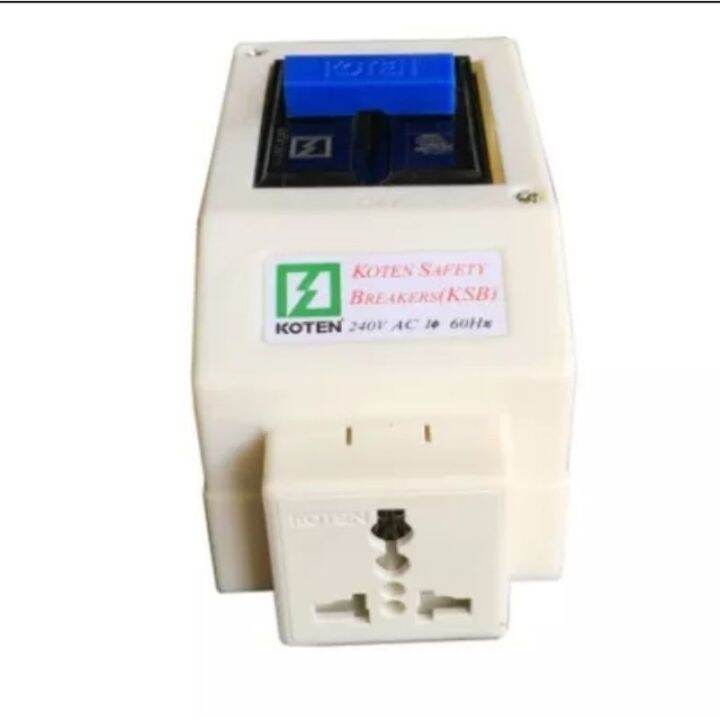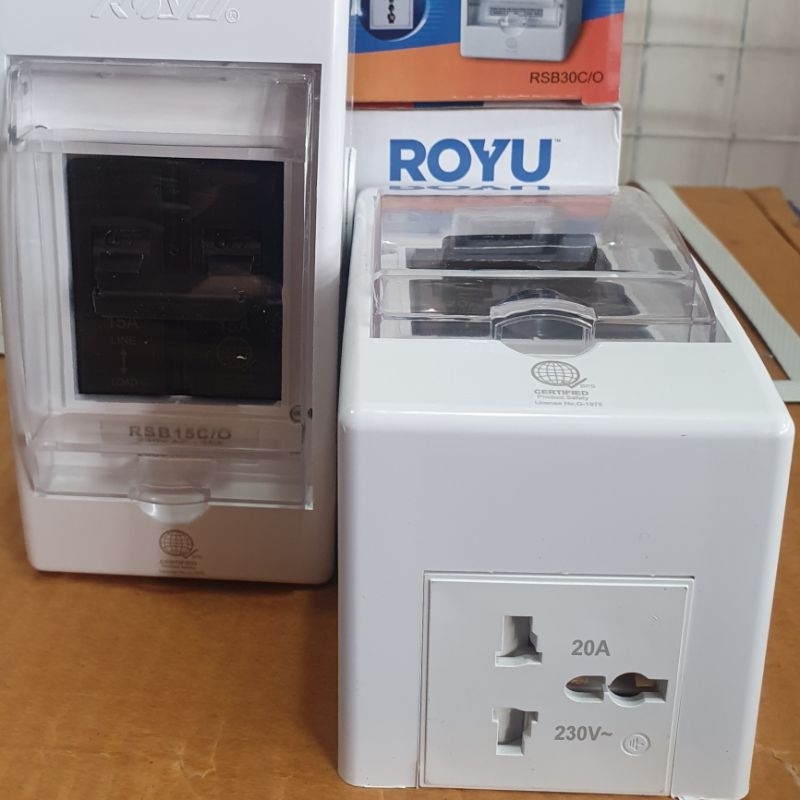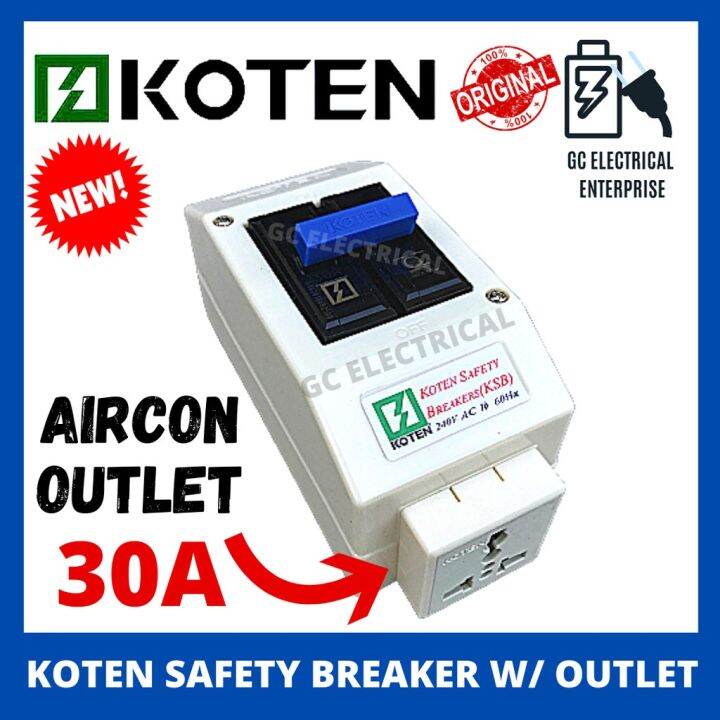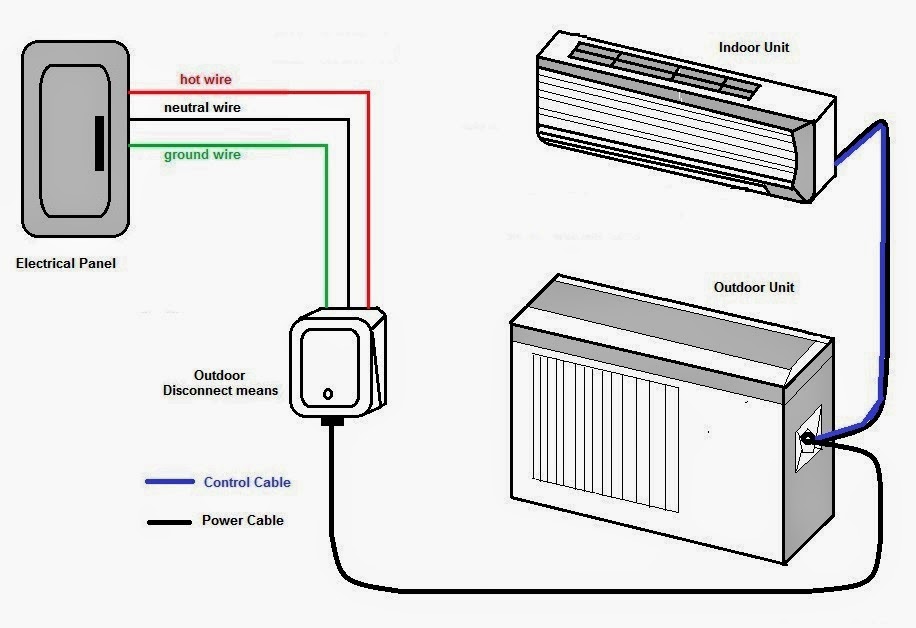Fun Tips About Is Circuit Breaker Good For Aircon

BREAKER INSTALLMENT FOR SPLIT TYPE AIRCON YouTube
Is a Circuit Breaker a Good Idea for Your Air Conditioner? Let's Clear the Air
1. Understanding the Role of Circuit Breakers in AC Systems
Okay, so you're wondering if a circuit breaker is a good match for your air conditioner. That's a smart question! Think of a circuit breaker like the unsung hero of your electrical system, always standing guard and ready to jump into action when things get a little too hot (literally!). Your air conditioner, especially during those scorching summer months, is a power-hungry beast. It needs a steady stream of electricity to keep you cool and comfortable. But what happens when things go wrong? What if there's a power surge, an overloaded circuit, or some other electrical hiccup? That's where our friend, the circuit breaker, comes into play.
Without a circuit breaker, your air conditioner would be completely vulnerable to these electrical problems. Imagine a power surge zapping through your system, potentially frying the delicate components inside your AC unit. Ouch! That's a repair bill you definitely want to avoid. A circuit breaker acts as a safety net, instantly cutting off the power supply when it detects an overload or short circuit. It's like a tiny, electric bodyguard for your precious cooling machine.
So, is it a good idea? Absolutely! It's not just a good idea; it's practically essential. Think of it this way: you wouldn't drive a car without brakes, would you? A circuit breaker is the electrical equivalent of brakes for your air conditioner. It protects it from damage, prevents potential fires, and keeps your home safe. It's a small investment that can save you a whole lot of trouble and money in the long run.
Consider this: a properly sized and functioning circuit breaker is like having an insurance policy for your AC unit. Its a silent partner ensuring that your cooling system can operate safely and efficiently for years to come. Ignoring the importance of a circuit breaker is like playing Russian roulette with your home's electrical system. Don't risk it! Prioritize safety and invest in the peace of mind that comes with knowing your air conditioner is well-protected.

Circuit Breaker With Aircon Outlet. 20 30 60 Amperes. Lazada PH
Why Air Conditioners Need Special Attention
2. The Power Demands of Cooling Your Home
Air conditioners aren't your average household appliance. They're not like a toaster or a lamp that sips electricity. Air conditioners guzzle it down, especially when they're working hard to combat the summer heat. That high power demand means they're more likely to cause an overload on your electrical circuits. The bigger the AC unit, the more power it needs, and the greater the risk of tripping a breaker if things aren't set up correctly. This is why paying attention to your aircon's dedicated circuit is important.
Think about it: your air conditioner has to compress refrigerant, circulate air, and run a fan — all at the same time. That takes a lot of energy! And if your wiring isn't up to snuff, or if you're trying to run too many other appliances on the same circuit, you're just asking for trouble. A circuit breaker is designed to prevent that trouble by shutting down the power before anything catastrophic happens. A dedicated circuit breaker makes sure the AC unit gets what it needs without interfering with other appliances.
Imagine trying to run a marathon without proper training. You'd probably collapse before you reached the finish line. Similarly, trying to run an air conditioner on an inadequate circuit is a recipe for disaster. The circuit breaker is there to prevent that electrical "collapse" and keep your AC unit running smoothly. It's a critical component of a safe and efficient cooling system.
In addition to the high power demand, air conditioners also experience a surge of electricity when they first start up. This "inrush current" can be several times higher than the normal running current. A circuit breaker needs to be able to handle this surge without tripping unnecessarily. That's why it's so important to choose the right type and size of circuit breaker for your air conditioner. A professional electrician can help you ensure that your system is properly protected.

Royu Safety Breaker With Cover And Outlet Moulded Case Bolt On 15A,20A
Choosing the Right Circuit Breaker for Your AC Unit
3. Matching Breaker Size to Your Air Conditioner's Needs
Okay, so you're convinced that a circuit breaker is essential for your air conditioner. Great! But not just any circuit breaker will do. It's like trying to wear shoes that are three sizes too big — they might cover your feet, but they won't provide the support and protection you need. Choosing the right circuit breaker involves matching its amperage rating to the specific power requirements of your AC unit. Getting this wrong can lead to constant tripping (if the breaker is too small) or inadequate protection (if it's too large).
The amperage rating of your circuit breaker should be clearly marked on the breaker itself (usually a number followed by the letter "A"). You'll also find the power requirements of your air conditioner on its nameplate, which is typically located on the side or back of the unit. This nameplate will tell you the maximum current draw of the AC unit, usually in amps. Ideally, the circuit breaker's amperage rating should be slightly higher than the maximum current draw of the AC unit to accommodate the initial surge when the unit starts up. However, it shouldn't be so much higher that it fails to trip in the event of a genuine overload.
For example, let's say your air conditioner has a maximum current draw of 15 amps. In this case, a 20-amp circuit breaker would likely be a good choice. This provides a little extra headroom for the start-up surge, while still providing adequate protection against overloads. However, it's always best to consult with a qualified electrician to determine the ideal circuit breaker size for your specific air conditioner and electrical system. They can take into account factors such as wiring size, distance from the electrical panel, and other appliances on the same circuit.
Furthermore, consider the type of circuit breaker. Some are designed for general use, while others are specifically designed for appliances with high inrush currents, like air conditioners. These specialized breakers, often called "time-delay" or "HACR" (Heating, Air Conditioning, and Refrigeration) breakers, are designed to tolerate brief surges without tripping unnecessarily. Using the wrong type of breaker can lead to nuisance tripping, which can be incredibly frustrating and inconvenient. The key takeaway? Don't guess! Consult a pro for the best breaker for your AC.

What Happens When a Circuit Breaker Trips? And What To Do.
4. Troubleshooting and Resetting Your AC's Circuit Breaker
So, your circuit breaker tripped. Don't panic! It's doing its job. Its protecting your air conditioner and your home from potential electrical hazards. Before you simply flip the breaker back on, it's important to understand why it tripped in the first place. Ignoring the cause could lead to further problems, including damage to your AC unit or even a fire hazard. Think of a tripped breaker as a warning sign — a signal that something isn't quite right with your electrical system.
The first step is to visually inspect your air conditioner and the surrounding area for any obvious signs of problems. Are there any loose wires? Is the AC unit making strange noises? Is there any burning smell? If you notice anything unusual, don't attempt to fix it yourself. Instead, call a qualified electrician to investigate the issue. If everything looks normal, the next step is to try resetting the circuit breaker. Turn the breaker all the way to the "OFF" position, and then flip it back to the "ON" position. This ensures that the breaker is fully reset. If the breaker trips again immediately, it's a sign of a more serious problem that needs professional attention.
It's crucial not to repeatedly reset a circuit breaker without understanding the underlying cause of the tripping. Each time the breaker trips, it's a sign that something is overloading the circuit. Continuously resetting the breaker could eventually damage the breaker itself or even lead to a fire. If the breaker trips frequently, consider having an electrician inspect your air conditioner, wiring, and electrical panel to identify the source of the problem. It could be something as simple as an overloaded circuit, or it could be a more complex issue like a faulty compressor or a short circuit in the wiring.
Moreover, consider what other appliances are running on the same circuit as your air conditioner. Often, tripping breakers are simply caused by multiple high-power devices pulling too much electricity at once. Try reducing the load on the circuit by turning off other appliances before resetting the breaker. If this solves the problem, you may need to have an electrician install a dedicated circuit for your air conditioner to prevent future tripping. Remember, safety first! Always prioritize electrical safety and consult with a qualified professional if you have any concerns.

Maintaining Your AC's Electrical System for Long-Term Reliability
5. Proactive Steps to Prevent Circuit Breaker Issues
Just like your car needs regular maintenance to keep it running smoothly, your air conditioner's electrical system needs attention to prevent problems and ensure long-term reliability. A proactive approach to maintenance can help you avoid unexpected circuit breaker trips, costly repairs, and even potential safety hazards. Think of it as an investment in the longevity and performance of your cooling system.
One of the simplest and most effective maintenance tasks is to regularly inspect your air conditioner's wiring and connections. Look for any loose wires, frayed insulation, or signs of corrosion. Loose connections can create resistance, which generates heat and can eventually lead to a circuit breaker trip. If you notice any problems, have them repaired by a qualified electrician as soon as possible. Another important maintenance task is to keep your air conditioner clean and free of debris. Dirt and dust can accumulate inside the unit, restricting airflow and causing it to work harder, which increases its power consumption and the risk of overloading the circuit.
Furthermore, consider having your air conditioner professionally inspected and serviced at least once a year. A qualified HVAC technician can thoroughly inspect all components of the system, including the wiring, connections, and circuit breaker, to identify any potential problems before they become serious. They can also clean the coils, lubricate moving parts, and check the refrigerant level to ensure that your air conditioner is running efficiently and safely. This annual maintenance can significantly extend the lifespan of your AC unit and reduce the likelihood of electrical issues.
In addition to regular maintenance, consider upgrading your electrical system if it's old or outdated. Older wiring and circuit breakers may not be able to handle the demands of modern air conditioners, especially during periods of peak usage. Upgrading to a newer, more robust electrical system can provide a more reliable and safer power supply for your AC unit. Finally, be mindful of the other appliances that are running on the same circuit as your air conditioner. Avoid overloading the circuit by turning off unnecessary appliances when your AC unit is running. A little bit of preventative care can go a long way in ensuring the reliable performance of your AC and preventing frustrating circuit breaker trips.

Split Type Aircon Circuit Diagram
FAQ
6. Answers to Common Questions
Q: My circuit breaker keeps tripping when I turn on my air conditioner. What's going on?A: Frequent tripping usually indicates an overload or a short circuit. Check for other appliances on the same circuit. If that's not it, have an electrician inspect your AC unit and wiring.
Q: Can I use a regular circuit breaker for my air conditioner?A: Ideally, no. An HACR (Heating, Air Conditioning, and Refrigeration) rated breaker is designed to handle the high inrush current of an AC unit without nuisance tripping.
Q: How do I know what size circuit breaker my air conditioner needs?A: Check the nameplate on your AC unit for its maximum current draw (in amps). Then, consult a qualified electrician to determine the appropriate breaker size for your specific situation.